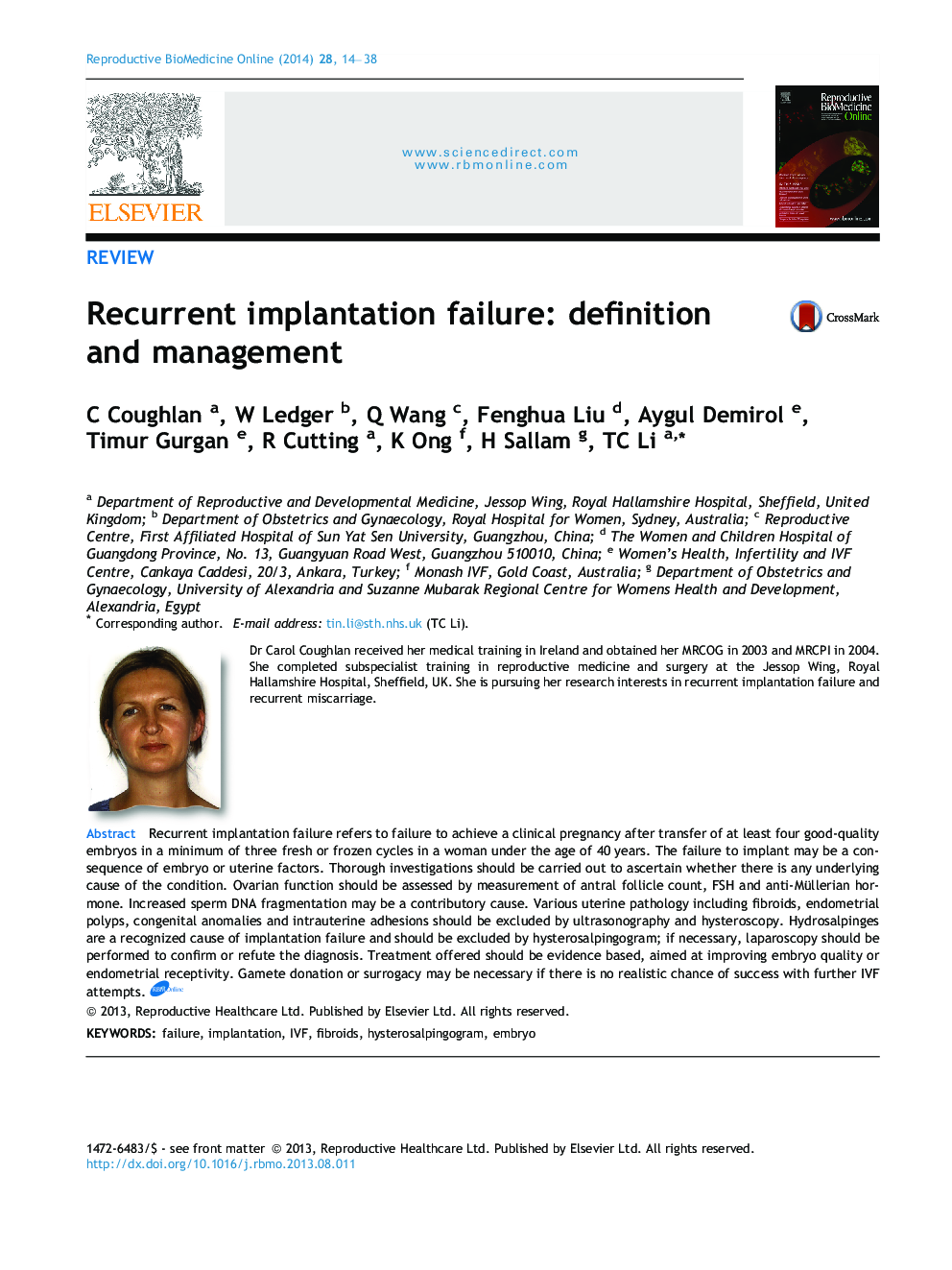| Article ID | Journal | Published Year | Pages | File Type |
|---|---|---|---|---|
| 3970165 | Reproductive BioMedicine Online | 2014 | 25 Pages |
Recurrent implantation failure refers to failure to achieve a clinical pregnancy after transfer of at least four good-quality embryos in a minimum of three fresh or frozen cycles in a woman under the age of 40 years. The failure to implant may be a consequence of embryo or uterine factors. Thorough investigations should be carried out to ascertain whether there is any underlying cause of the condition. Ovarian function should be assessed by measurement of antral follicle count, FSH and anti-Müllerian hormone. Increased sperm DNA fragmentation may be a contributory cause. Various uterine pathology including fibroids, endometrial polyps, congenital anomalies and intrauterine adhesions should be excluded by ultrasonography and hysteroscopy. Hydrosalpinges are a recognized cause of implantation failure and should be excluded by hysterosalpingogram; if necessary, laparoscopy should be performed to confirm or refute the diagnosis. Treatment offered should be evidence based, aimed at improving embryo quality or endometrial receptivity. Gamete donation or surrogacy may be necessary if there is no realistic chance of success with further IVF attempts.Recurrent implantation failure is an important cause of repeated IVF failure. It is estimated that approximately 10% of women seeking IVF treatment will experience this particular problem. It is a distressing condition for patients and frustrating for clinicians and scientists. In this review, we have discussed the definition and management of the possible underlying causes of recurrent implantation failure.
